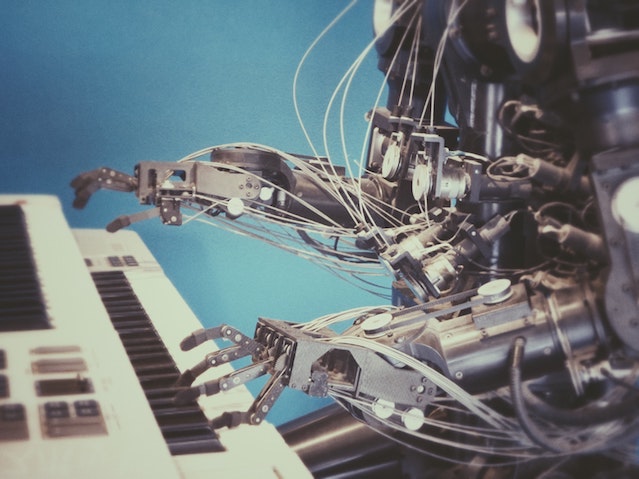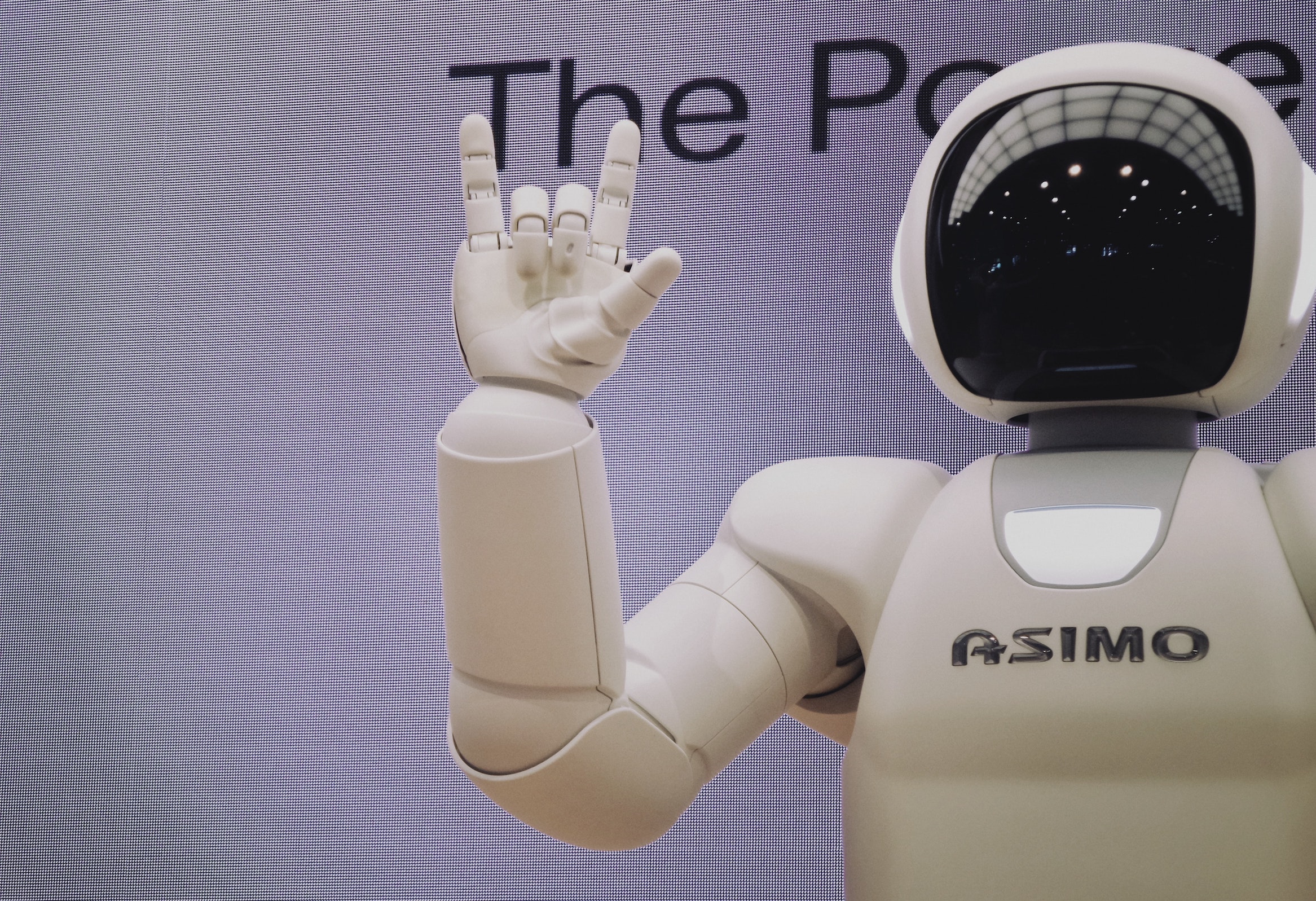How to become an Artificial Intelligence engineer
Artificial intelligence is an emerging technology that is currently in high demand. AI is a technique that enables machines to mimic human behavior. Thanks to Artificial Intelligence the tasks that normally require human intelligence, such as visual perception, speech recognition, and others can be performed by computer systems.
In the future, this sphere is only expecting to grow and employ numerous specialists. If you are technically savvy and have a background in software programming, you may want to know about how to become an AI engineer and start your career in AI.
Who is an AI engineer?
An Artificial Intelligence engineer is a specialist who works on artificial intelligence technologies and problems. They develop software and programs that can be used for robots. As machines learn from past data and actions, with the new information the machine is able to make corrections to itself and eliminate the problem. So the task of AI engineers is creating the algorithms that will teach the system to learn and adjust and perform human-like tasks.
AI engineer responsibilities

Generally speaking, an AI engineer’s tasks include drawing business insights, which can be used to make business decisions that affect the organization. Depending on the degree and the level of the expertise an AI engineer may need to perform the below tasks:
AI engineer skills and competences

Programming languages. Python is not enough, make sure you are acquainted with basic algorithms of R, Java C++. If you want a job in the Artificial Intelligence field, you will probably need to learn the above languages at some point.
- Study and transform Data Science prototypes.
- Research and implement appropriate machine-learning algorithms and AI tools (types of ML algorithms supervised learning, unsupervised learning, and reinforcement learning).
- Develop machine learning applications according to requirements.
- Work closely with electrical engineers and robotics teams. For example, programming may enable robots to learn to work together with other robots.
- Select appropriate data sets and data representation methods. Very often companies want to hire a hybrid specialist who can perform data-engineering, data science, software development tasks.
- Run machine-learning tests and experiments. They can take a long time, hours, days and even weeks in some cases.
- Perform statistical analysis and finetune using test results.
- Train and retrain the system whenever necessary.
- Keep abreast of the development in the field.
- Helping managers and business stakeholders understand the potential when planning new products.
Algebra, calculus, and statistics. You need to be intimately familiar with different AI models—such as Hidden Markov models, Naive Bayes, Gaussian mixture models. Statistics is going to come up a lot, make sure you are familiar with portion distributions and standard deviations. Pressure upon applied science: linear algebra, real analysis, numerical analysis.
Applied maths. Bear in mind this is a very math-intensive field, if you’ve been away from it for a while it may seem intimidating, but nothing is impossible if you pay enough diligence and have much practice.
Neural network architectures. AI engineers need to be able to develop their own neural networks and deep learning framework, as well as tune neural networks models, learn how to apply neural networks in real-world examples, and generally understand how neural networks work.
Language processing. This refers to the AI method of communicating with an intelligent system using natural and artificial languages. Language processing is required when you want an AI system to perform as per your instructions. The field involves making computers to perform useful tasks with the natural languages humans use and artificial languages. The input and output of the system can be spoken or written text.
Communication and problem-solving skills. As an AI engineer, you will need to deliver your ideas to your colleagues, managers, project stakeholders. To be able to overcome obstacles in decision making an AI engineer needs to have excellent problem-solving skills.
How to become an AI Engineer?
Here is a roadmap that can lead you to your first AI job:
- Get a bachelor’s degree in computer science, mathematics, information technologies, statistics, finance, economics.
- Finetune technical skills. Programming languages such as Python/R/SAS, software development, design patterns, electronics, robotics, and instrumentation.
- Develop business skills: analytical problem solving, effective communication, creative thinking, industry knowledge.
- After you have acquired all the above skills you can get a higher degree which will open many more opportunities for you in the future. You can get a Master’s degree or a Certification program (Big Data certification, Deep learning, Machine learning certifications). This will add a lot of value to your resume and will help you get theoretically and practically more advanced.
Why AI engineers’ salaries are so high

According to The New York Times research, there are a few factors that let the industry offer high salaries. First of all, it’s that there is a competition between different industries, for example, the auto industry is competing with Silicon Valley for the same experts who can help build self-driving cars. Besides, tech companies such as Facebook and Google also have money to spend on solving problems like building digital assistants for smartphones and home gadgets and spotting offensive content. On the other hand, a shortage of talent also makes big companies to land as much of it as they can. The statistics show that in the world, fewer than 10,000 people have the skills necessary to tackle serious artificial intelligence research
Top 5 companies for an AI engineer
All major companies are investing in AI technology as it proves to be one of the most perspective directions in business development. Here is a list of companies that heavily invest in AI:
- Google. The company uses AI in almost all of its products. For example, the Google Assistant which can actually have a conversation with you using Natural Language Processing, and other Google applications such as Google Translate and Google Photos.
- Apple. iPhones already use a neural engine running the neural network software for speech and image recognition. Besides, Apple has acquired around 20 AI startups and that will only enhance their technologies.
- Facebook. The company uses Artificial Intelligence in every aspect of its work. Facebook uses technologies like DeepText, Language Translation, Facial Recognition, etc. to make its services more accessible to users. Besides, Facebook AI Research (FAIR) is working on technologies like Computer Vision, Conversational AI, Natural Language Processing, etc.
- Amazon. There are 3 products in which Amazon uses AI: Alexa, the Amazon Go Store, and the recommendation engine on Amazon Prime. Alexa is a personal assistant with a built-in speech recognition feature that uses Natural Language Processing to interact with the users and formulate a response.
- Microsoft. Microsoft created Cortana, an intelligent assistant that can provide personal AI experiences. Bing, which is Microsoft’s search engine is also using advanced AI search algorithms that allow image search as well. Apart from it, Microsoft is also investing in bot technology with a focus on bot payments.
FAQ
How much does an Artificial Intelligence engineer make?
According to salary estimated from 44,419 employees, users, and past and present job advertisements on Indeed in the past 36 months an average AI salary is $140,622 per year. For the latest updates, you can check Indeed reports.
Does Artificial Intelligence require coding?
Artificial Intelligence does require coding, and a successful engineer needs to know more than one programming language. Usually, these are Python, R, C++, Lisp, Java, and others.
Are AI engineers in demand?
There has recently been a boom in AI, so the need for efficient and skilled programmers and engineers skyrocketed. AI helps businesses grow and achieve their full potential, thus AI engineers are in demand in many spheres.
Where can I start an AI career?
AI almost always means doing ML (and, particularly, deep learning) research. There are several ways to do it. But when you are inexperienced, an industry internship is the most comfortable way to learn from the best. So try looking for a company that offers paid programs for interns. This will let you gain valuable experience and make your living.
What programming languages are required for AI?
Python is considered to be in the first place in the list of all AI development languages due to its simplicity. R is another effective language and environment for analyzing and manipulating the data for statistical purposes. Lisp can be used in AI as one of the oldest and the most suited languages for development. Java is also a good choice for AI development.
Final thoughts
To conclude, working in an AI sphere is both challenging and rewarding. It requires time, diligence, and efforts to become a good AI engineer. You will need to have a deep foundation in statistics and probability and be really comfortable with the math.
Solid analytics and problem-solving skills will help too. Though the actual programming is often less important, you will still need to know several programming languages. The easiest way to gain experience in the field is finding a paid internship. All the efforts will pay off with absorbing tasks and a high salary.

